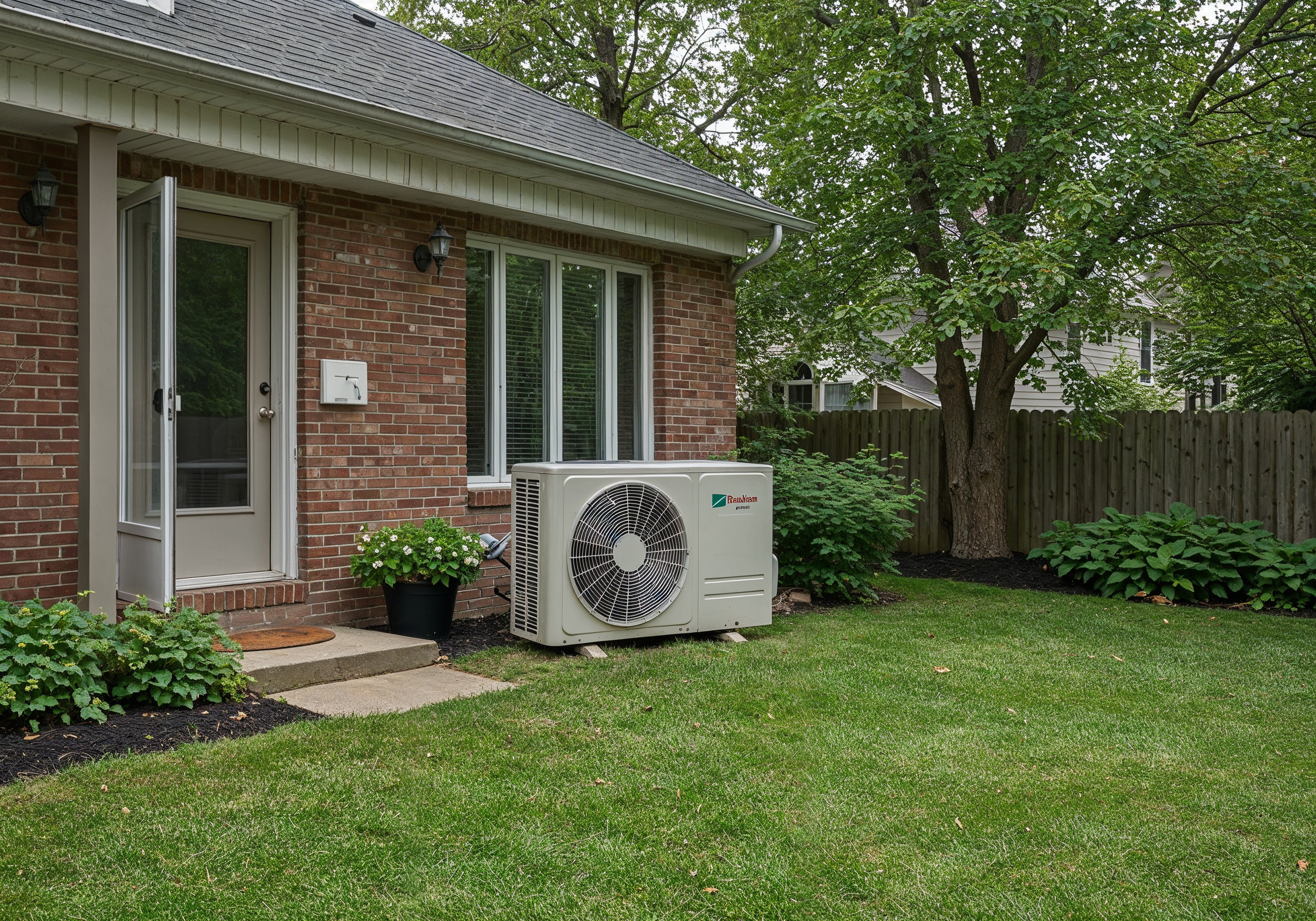The Ultimate Guide to Heat Pumps
Contractors
In the realm of home comfort, heat pumps are gaining momentum as an efficient and eco-friendly solution. Whether you\’re a homeowner, contractor, or policymaker, understanding heat pumps can elevate your approach to heating and cooling systems.
Households
Heat pumps have revolutionized the way households manage their indoor climate. From enhanced comfort to energy efficiency, they offer a multitude of benefits that cater to modern living standards.
Programs + Policy Makers
Policy makers play a crucial role in promoting sustainable technologies like heat pumps. By incentivizing their adoption and integrating them into energy programs, policymakers can drive significant environmental and economic benefits.
Table of Contents:
- What’s a Heat Pump?
- How Do Heat Pumps Work?
- Modern Home Heat Pump Technology vs. Other HVAC Systems
- The Different Kinds of Heat Pump Systems
- Why Is a Heat Pump More Efficient?
- What Are the Pros and Cons of a Heat Pump System?
- How Much Does a Heat Pump Cost?
- Ready to Get Started?
- Ready to Crunch the Numbers?
- FAQs About Heat Pumps
- Related Articles
- Stay in Touch
What’s a Heat Pump?
A heat pump is a versatile heating and cooling system that extracts heat from the air or ground and transfers it indoors or outdoors, depending on the season. Unlike traditional HVAC systems, heat pumps provide both heating and cooling functionalities, making them a year-round solution for indoor climate control.
How Do Heat Pumps Work?
Heat pumps utilize refrigerant cycles to transfer heat between indoor and outdoor environments. During the winter, they extract heat from the outside air or ground and distribute it indoors. In the summer, the process reverses, expelling heat from indoors to outdoors, thereby cooling the indoor space.
Modern Home Heat Pump Technology vs. Other HVAC Systems
Modern heat pump technology boasts superior efficiency and performance compared to traditional HVAC systems. With advancements in compressor technology and refrigerants, contemporary heat pumps deliver optimal comfort with minimal energy consumption.
The Different Kinds of Heat Pump Systems
Air-source Heat Pumps
Air-source heat pumps are the most common type, utilizing outdoor air as a heat source or sink. They come in ducted and ductless configurations, offering flexibility in installation and operation.
Ducted vs. Ductless Air-source Heat Pump Systems
Ducted systems utilize ductwork to distribute conditioned air throughout the home, providing a centralized heating and cooling solution. In contrast, ductless systems eliminate the need for ducts, making them ideal for retrofitting existing homes or spaces with limited installation options.
Geothermal Heat Pumps
Geothermal heat pumps harness the stable temperature of the earth to heat and cool homes efficiently. By exchanging heat with the ground through underground loops, geothermal systems offer consistent performance regardless of outdoor conditions.
Geothermal vs. Air Source: Which Is Better?
While both geothermal and air-source heat pumps offer energy-efficient heating and cooling, geothermal systems tend to be more efficient and environmentally friendly in the long run. However, they require significant upfront investment and suitable land for installation.
Why Is a Heat Pump More Efficient?
Heat pumps achieve higher efficiency levels by leveraging renewable energy sources such as air or ground heat. By extracting heat from the environment rather than generating it through combustion, heat pumps reduce reliance on fossil fuels and minimize greenhouse gas emissions.
What Are the Pros and Cons of a Heat Pump System?
Disadvantages of Heat Pumps
- Cost: Initial installation costs may be higher compared to traditional heating systems.
- “Feel” (of the Heat): Some individuals may perceive the heat produced by heat pumps differently than that of traditional furnaces.
- Appearance: Outdoor units of heat pumps may affect the aesthetic appeal of residential properties.
Benefits of Heat Pumps (a Much Longer List)
- Better Comfort
- Easy to Live With
- Healthier Air
- All-in-One System
- Flexible
- Cleaner, Greener Energy
- Affordable
How Much Does a Heat Pump Cost?
The cost of a heat pump system varies depending on factors such as system size, efficiency rating, installation requirements, and regional labor costs. On average, homeowners can expect to invest between $3,000 and $10,000 for a complete heat pump installation.
Ready to Get Started?
Embarking on the journey to integrate a heat pump into your home or project can be both exciting and rewarding. With the right information and guidance, you can make informed decisions that enhance comfort, efficiency, and sustainability.
Ready to Crunch the Numbers?
Before committing to a heat pump installation, it\’s essential to evaluate your specific heating and cooling needs, as well as budget considerations. Consulting with HVAC professionals and conducting a comprehensive cost-benefit analysis can help you determine the feasibility and ROI of a heat pump system.
FAQs About Heat Pumps
Can a Heat Pump Cool a Whole House?
Yes, heat pumps can effectively cool entire homes by reversing the refrigerant cycle to extract heat from indoor air and expel it outdoors.
Are Heat Pump Water Heaters Any Good?
Heat pump water heaters offer significant energy savings compared to conventional electric water heaters, making them a viable option for efficient water heating.
How Much Maintenance Does a Heat Pump Need?
Routine maintenance such as filter replacement and coil cleaning is essential to ensure optimal performance and longevity of heat pump systems. Professional inspection and servicing may be recommended annually or biannually.
Do I Need Ducts for a Heat Pump System?
While ducted heat pump systems require ductwork for air distribution, ductless systems offer a duct-free alternative suitable for various applications, including older homes or room additions.
How Many Mini Splits Do I Need for My House?
The number of mini-split heat pump units needed depends on factors such as square footage, layout, insulation, and climate zone. HVAC professionals can conduct load calculations to determine the optimal number and placement of units for your home.
Related Articles
- Why Is My House So Humid? Here’s How to Fix the Real Problem.
- Ultimate Guide to Window AC Units: Costs, Efficiency, and Alternatives
- Get More for Your Money: DC Energy Efficiency Rebates
Stay in Touch
For the latest updates, tips, and insights on heat pumps and sustainable living, be sure to subscribe to our newsletter and follow us on social media. Together, we can make a positive impact on our homes, communities, and the planet.
 905-780 3262
905-780 3262

